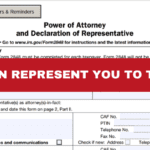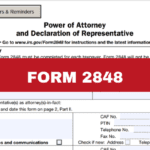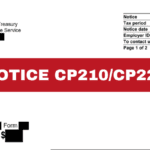In a bid to support businesses affected by the pandemic, the IRS introduced the Employee Retention Credit (ERC). This refundable employment tax credit aimed to help businesses affected by COVID-19 keep employees on payroll. While this initiative has been a lifeline for many, the rise in ERC audits underscores the IRS’s intent to ensure the legitimacy of each claim.
Attorney Steve Klitzner, founder of our law firm and a prominent figure specializing in resolving IRS disputes, recently expressed his perspective on the matter in a Journal of Accountancy article.
Many businesses, mislead by these promotions, genuinely believed they were following proper channels. This article delves into the complexities of the ERC, what’s causing the uptick in audits, and how businesses can navigate this challenging terrain.
Commenting on the rise of certain opportunistic entities offering to secure ERC for businesses, Mr. Klitzner warned, “The IRS has begun to audit businesses to see if they really qualify. This could result in substantial taxes owed, plus penalty and interest. Also, there is a good chance that many of the companies offering the service will be gone, along with the 10% to 20% fee they paid to the companies that helped them file for the credit.”
Understanding the Basics of ERC
To qualify for the ERC, businesses must have faced a full or partial suspension of operations due to COVID-19 regulations or a significant decline in gross receipts. With the intent of supporting such impacted businesses, the ERC allowed for a maximum credit claim of up to $5,000 per employee in 2020 and $28,000 per employee in 2021. Given these generous provisions, it’s estimated that millions of businesses, desperate for financial relief, applied for this credit.
Why Are Audits Happening?
The proliferation of ERC audits is not random. It’s partly due to companies that sprouted up promising businesses the credit—sometimes against prior advice from their own accountants. These companies took substantial fees – often by overpromising or overselling their service – and now the businesses they “helped” are facing intense scrutiny. Here are the primary drivers for audits:
- Ensuring Legitimacy: With the surge in claims, many guided by third-party companies, the IRS is keen to verify each application’s authenticity.
- Maintaining Public Trust: Audits validate to taxpayers that public funds are being distributed appropriately.
- Recovery of Misallocated Funds: Misclaimed credits can misdirect crucial federal resources. Identifying these errors ensures funds are used correctly.
The IRS has observed the high degree of fraudulent claims under this program, and has thus freed up additional resources to ramp up its auditing of ERC claims in an effort to crack down on ERC fraud.
Common Mistakes Leading to ERC Audits
Several pitfalls might trigger an audit:
- Incorrectly determining eligibility: Many businesses relied on “experts” rather than delving into the intricate requirements themselves.
- Poor documentation: Comprehensive records, proving a business’s qualification for the credit, are imperative.
- Miscalculations: Arithmetic errors, especially when relying on third-party services, can be a red flag.
- Double-dipping benefits: Leveraging the same wages for both PPP forgiveness and the ERC remains a prevalent issue.
Pre-Audit Preparedness
Proactivity is key. Ensure you have comprehensive records of all pertinent transactions and documentation. Periodically review your claims for accuracy and compliance. When uncertainties arise, it’s prudent to consult a tax professional.
Benefits of Legal Representation in ERC Audits
Engaging a tax attorney can drastically alter your audit experience:
- Expertise in Tax Law: The labyrinth of tax codes is formidable. Tax attorneys, with their extensive training and hands-on experience, ensure you navigate these twists and turns seamlessly.
- Negotiation Skills: Beyond mastering legal nuances, tax attorneys excel in dialogue, clarifications, and negotiating optimal outcomes with the IRS. This expertise ensures you’re consistently represented in the best light.
- Peace of Mind: Partnering with a tax attorney translates to fewer worries. Their involvement guarantees fewer uncertainties about potential ramifications.
- Documentation & Evidence Management: It’s not just about having the right documents but presenting them persuasively. Attorneys refine the presentation, amplifying the weight of your evidence.
- Protection of Rights: Audits can be intricate. Taxpayers are entitled to specific rights and protections. An attorney ensures these rights are consistently upheld, shielding against any undue IRS overreach.
What To Expect in an ERC Audit
Navigating an audit requires understanding its depth:
- The Initial Contact: Typically, a written notice heralds the start. This notice elaborates on the audit’s purpose and the periods under scrutiny.
- Documentation Request: Be prepared for a list. The IRS could ask for anything from payroll records, bank statements, to pandemic-related business correspondence.
- Interview Process: Occasionally, the IRS may seek clarity through interviews, be it with business owners or employees, to paint a full picture of the claims.
- Timeline: While timelines fluctuate based on case intricacy, promptness in communication is key. Delays can stretch the process and might not be perceived kindly.
- Potential Outcomes: Post-audit, outcomes can vary. They range from no changes (all was in order) to proposed changes (which you can agree to or challenge) and, in persistent disagreements, a formal report.
Responding to an Audit
On receiving the IRS notice, delve into its details. Collate all relevant documentation and, if not already done, this is the opportune moment to seek a tax professional’s counsel. Transparent and well-prepared engagement with the IRS is essential at every juncture.
If You Disagree with ERC Audit Findings
Should you find yourself at odds with the IRS findings, remember, you have recourse. If you believe there’s been an oversight or error in judgment, your rights permit appeals or requests for reconsideration. Always be proactive and punctual in your responses.
Conclusion
The act of claiming the ERC requires a blend of diligence, accuracy, and, at times, expert guidance. Given the surge in audits, proactive measures, staying informed, and the support of a seasoned tax attorney can ease the journey through these challenging waters.
Need Help Responding to an ERC Audit?
Should you be at the crossroads of an ERC audit or wish to confirm your compliance, you needn’t walk this path alone. Our seasoned team is here to guide every step of the way. We deal with the IRS daily and have ample experience representing small business owners. Reach out today for a consultation.







 Steven N. Klitzner, P.A. is a tax attorney based in Miami, Florida. He has been practicing tax law for over 40 years, and currently holds a 10.0 rating by Avvo. Mr. Klitzner was appointed to the IRS Service Advisory Council in 2021 and is...
Steven N. Klitzner, P.A. is a tax attorney based in Miami, Florida. He has been practicing tax law for over 40 years, and currently holds a 10.0 rating by Avvo. Mr. Klitzner was appointed to the IRS Service Advisory Council in 2021 and is... 





